Resources
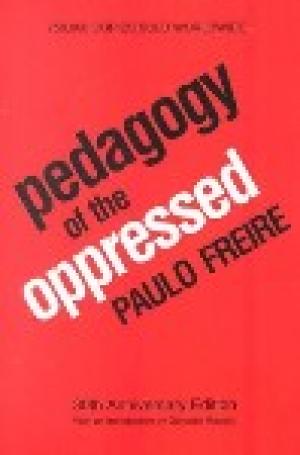
This text argues that the ignorance and lethargy of the poor are the direct result of the whole economic, social and political domination. By being kept in a situation in which it is practically impossible to achieve a critical awareness and response the disadvantaged are kept "submerged". The book suggests that in some countries the oppressors use the system to maintain this "culture of silence". Through the right kind of education, the book suggests, avoiding authoritarian teacher-pupil models and based on the actual experiences of students and on continual shared investigation, every human being, no matter how impoverished or illiterate, can develop a new awareness of self, and the right to be heard. (From the Publisher)
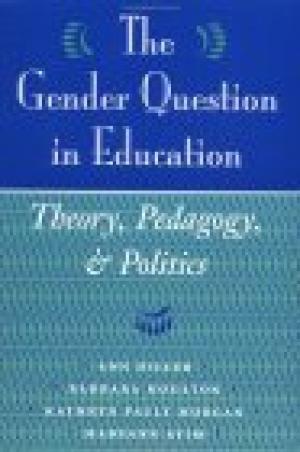
Four leading philosophers of education offer a sophisticated but accessible introduction to the central debates about the role of gender in educational practice, policymaking, and theory. (From the Publisher)
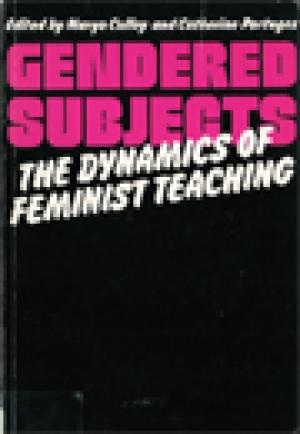
Two decades after the first Women's Studies courses appeared on campuses in the US, feminist research and teaching are now thriving around the world. The editors of this book provide a rich sample of theoretical and practical reflections on classroom experience by teachers of Women's Studies over the past ten years, raising provocative questions which apply broadly to many areas of progressive teaching. The collection features new, unpublished and original work as well as a selection of the best articles to have appeared in recent years. (From the Publisher)
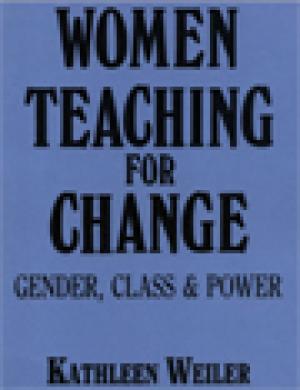
Applying theory to practice, Women Teaching for Change reveals the complexity of being a feminist teacher in a public school setting, in which the forces of sexism, racism, and classism, which so characterize society as a whole, are played out in multiracial, multicultural classrooms. "A fine book, a rich melding of critical theory in education, feminist literature, and pedagogical experience and expertise." Maxine Green, Columbia University. (From the Publisher)

This volume of New Directions for Adult and Continuing Education explores emerging theory and practice in adult development, adult learning, and feminist pedagogy for learning environments designed to meet women's needs. Adult women learners face special challenges as they enter or reenter higher education. Research and experience suggest that historical and current education approaches may not serve men and women equally. The central aim of this book is to help make learning environments more supportive of reentry women in their ongoing development. Many of the practices showcased in this sourcebook emerged from programs of alternative higher education as they endeavored to meet the needs of an increasingly diverse population of learners. The different pedagogical approaches described herein help a woman learner shape the narrative of her evolving self in multiple life contexts. Ultimately, the kinds of educational practices described in this volume will prove effective in promoting lifelong learning and development for both women and men. This is the 65th issue in the journal series New Directions for Adult and Continuing Education. (From the Publisher)
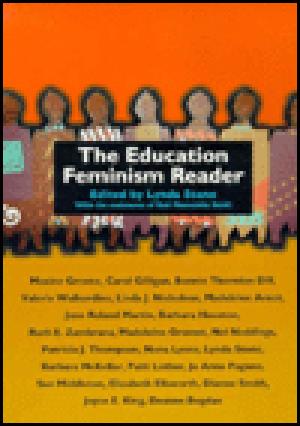
The Education Feminism Reader is an anthology of the most important and influential essays written in feminist education theory since the late seventies. Attentive to the quality and diversity of this growing field, The Reader presents the thinking of traditionally liberal feminists, radical postmodern theorists, women of color and those feminists with psychological, philosophical and political agendas. Contributors: Maxine Greene, Carol Gilligan, Bonnie Thornton Dill, Valerie Walkerdine, Linda J. Nicholson, Madeleine Arnot, Jane Roland Martin, Barbara Houston, Ruth E. Zambrana, Madeleine Gramet, Nel Noddings, Patricia J. Thompson, Nona Lyons, Lynda Stone, Barbara McKellar, Patti Lather, Jo Anne Pagano, Sue Middleton, Elizabeth Ellsworth, Dianne Smith, Joyce E. King, Deanne Bogdan. (From the Publisher)
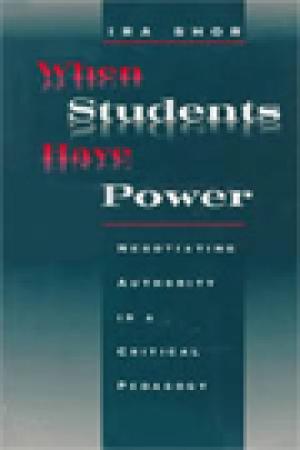
What happens when teachers share power with students? In this profound book, Ira Shor--the inventor of critical pedagogy in the United States-- relates the story of an experiment that nearly went out of control. Shor provides the reader with a reenactment of one semester that shows what really can happen when one applies the theory and democratizes the classroom. This is the story of one class in which Shor tried to fully share with his students control of the curriculum and of the classroom. After twenty years of practicing critical teaching, he unexpectedly found himself faced with a student uprising that threatened the very possibility of learning. How Shor resolves these problems, while remaining true to his commitment to power-sharing and radical pedagogy, is the crux of the book. Unconventional in both form and substance, this deeply personal work weaves together student voices and thick descriptions of classroom experience with pedagogical theory to illuminate the power relations that must be negotiated if true learning is to take place. (From the Publisher)
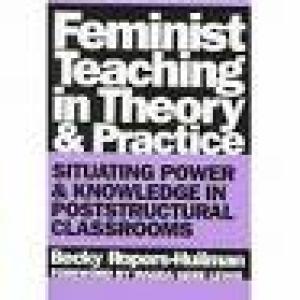
Using a feminist poststructural focus, Ropers-Huilman (Louisiana State Univ.) investigates feminist teachers' positions and styles in order to examine the practices of a theory of teaching. She explores teachers' reflections on power and gender, how they operate in the classroom, and their experiences as innovators in feminist teaching. No one particular approach or process is emphasized. The application of theory to practice allows the 22 teachers who were interviewed to explore and debate the interaction between students and teachers. The complexity of investigating feminist practices, rather than just the teachers themselves, allows a more flexible look at the issues and the social forces defining their interpretations. Ropers-Huilman explores factors contributing to the many forms of feminist teaching and how power affects and shapes the experience. (From the Publisher)

Critical Pedagogy and Predatory Culture is a major contribution to the radical literature on culture, identity and the politics of schooling, especially as it addresses the challenge and the promise of school and social reform through what the author calls a "critical multiculturalism." The author's approach to what he calls "predatory culture" and his exploration of recent debates over the role of public institutions and the state within such culture offers the discerning reader a unique combination of neo-marxist and post-structuralist theory--referred to by the author as "resistance of postmodernist critique." (From the Publisher)
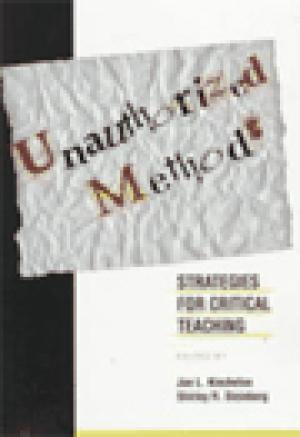
Unauthorized Methods makes accessible some of the best theoretical innovations in critical pedagogy of the last decade. The contributors consider how an integration of popular culture and cultural studies into the lesson plan can enrich and reinvigorate the learning experience. These essays, ranging widely in topic and educational level, are grounded in theory but intended for practical application. By focusing on classroom methods, the contributors provide educators with techniques, strategies, and examples designed to transform the classroom into a truly multicultural and democratic space. Unauthorized Methods will be an indispensable resource for teachers, students, and policy makers. (From the Publisher)